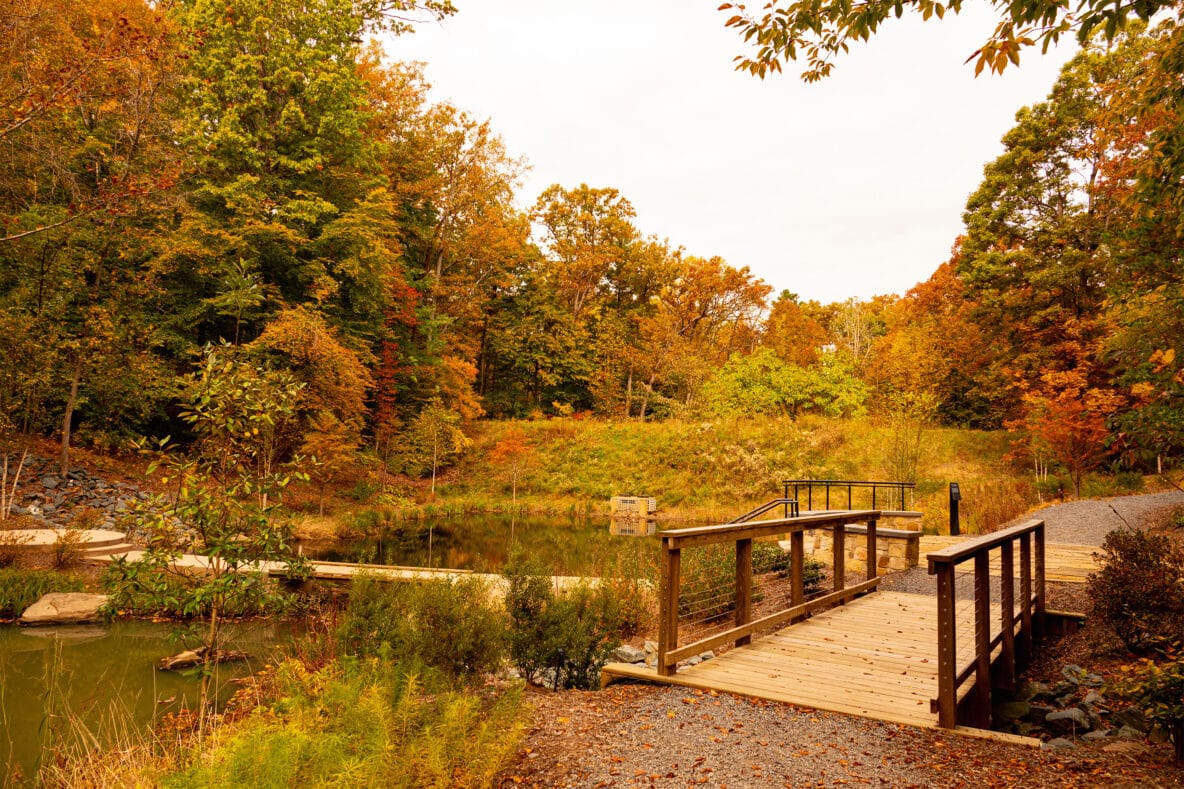York Bridge Concepts’ Timber Pedestrian Bridges at The University of Virginia and The Forum Hotel
Nestled in the lush, scenic landscape of Virginia, a series of elegant timber pedestrian bridges now connect The University of Virginia (UVA) and Kimpton The Forum Hotel, creating a seamless and beautiful link between these two hubs. Crafted by York Bridge Concepts (YBC), these timber structures are more than simple walkways; they offer visitors, students, and guests an inviting path through carefully landscaped gardens, encouraging a moment of tranquility as they traverse the campus and hotel grounds.
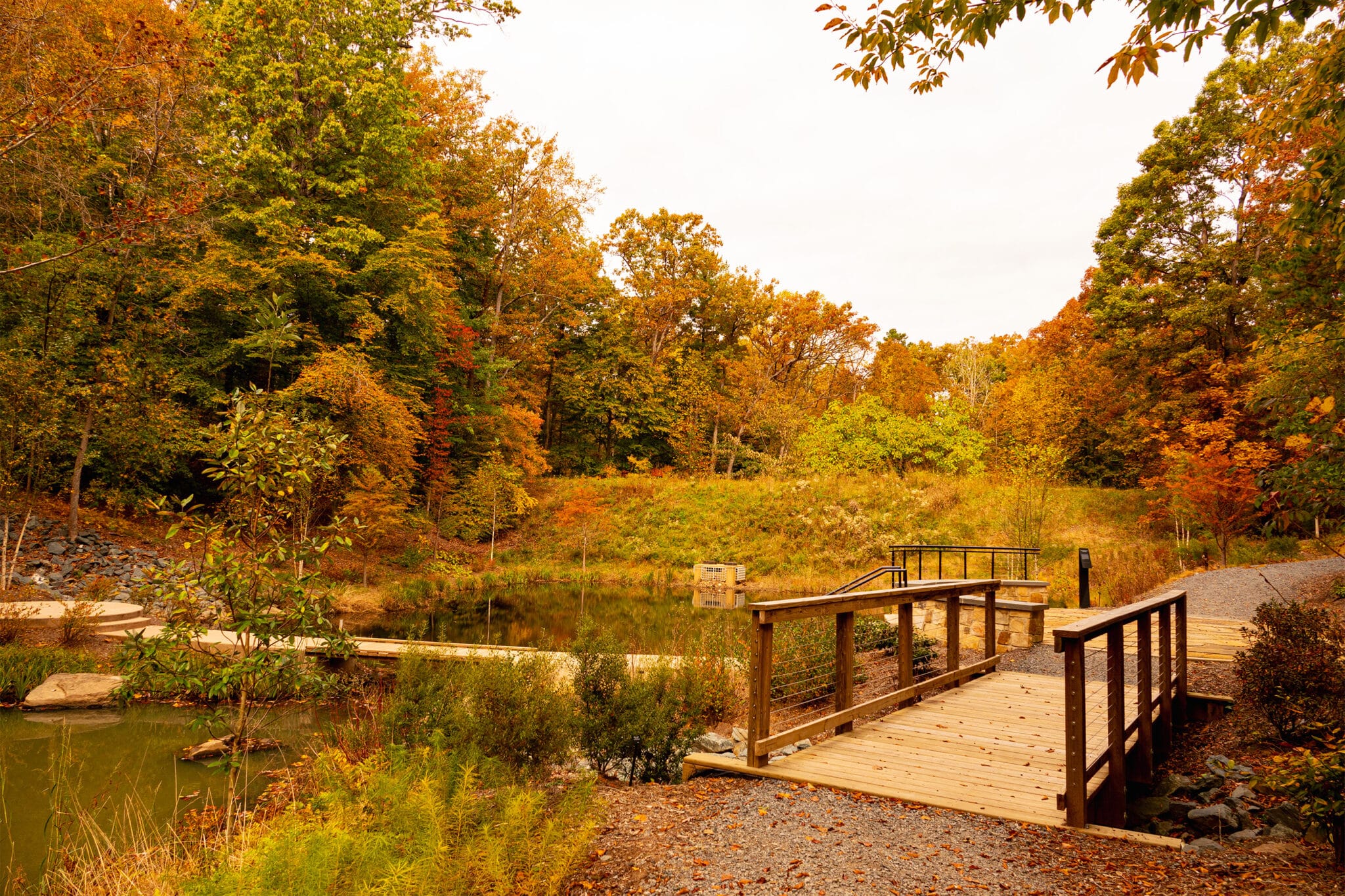
These timber bridges fulfill more than just functional needs—they enhance the aesthetic of the surrounding environment, blending seamlessly with the foliage and natural beauty that defines Virginia’s countryside. By connecting The Forum Hotel to the main areas of the university, these bridges reflect a thoughtful approach to landscape architecture, bringing together accessibility, serenity, and environmentally sensitive design.
York Bridge Concepts (YBC): Pioneers in Timber Bridge Design
York Bridge Concepts has established itself as a leader in designing and constructing timber bridges that harmonize with nature while offering robust and reliable infrastructure. With a commitment to innovation and environmental sustainability, YBC specializes in timber bridges that stand out for their aesthetic appeal, longevity, and low environmental impact. From the start, YBC’s philosophy has focused on integrating natural materials into environments where traditional, industrial designs might detract from the beauty of the surroundings.
YBC’s approach is rooted in principles that prioritize sustainable design and eco-friendly construction methods. The company understands the importance of creating infrastructure that aligns with the landscape, minimizing disturbance to natural ecosystems while meeting the structural needs of clients. With a reputation for excellence in craftsmanship, YBC ensures that each project, including those on The University of Virginia campus, incorporates high-quality materials and meticulous construction processes. This careful attention to design and environment has earned YBC projects widespread recognition and respect.
For the University of Virginia and The Forum Hotel, YBC designed these timber pedestrian bridges to foster a welcoming atmosphere that complements the area’s natural landscape. The result is a set of bridges that not only facilitate easy movement across the grounds but also provide a sense of place and connection to Virginia’s natural charm. Each bridge is a testament to YBC’s expertise in creating structures that offer both functionality and beauty, enhancing the experience for those who use them.
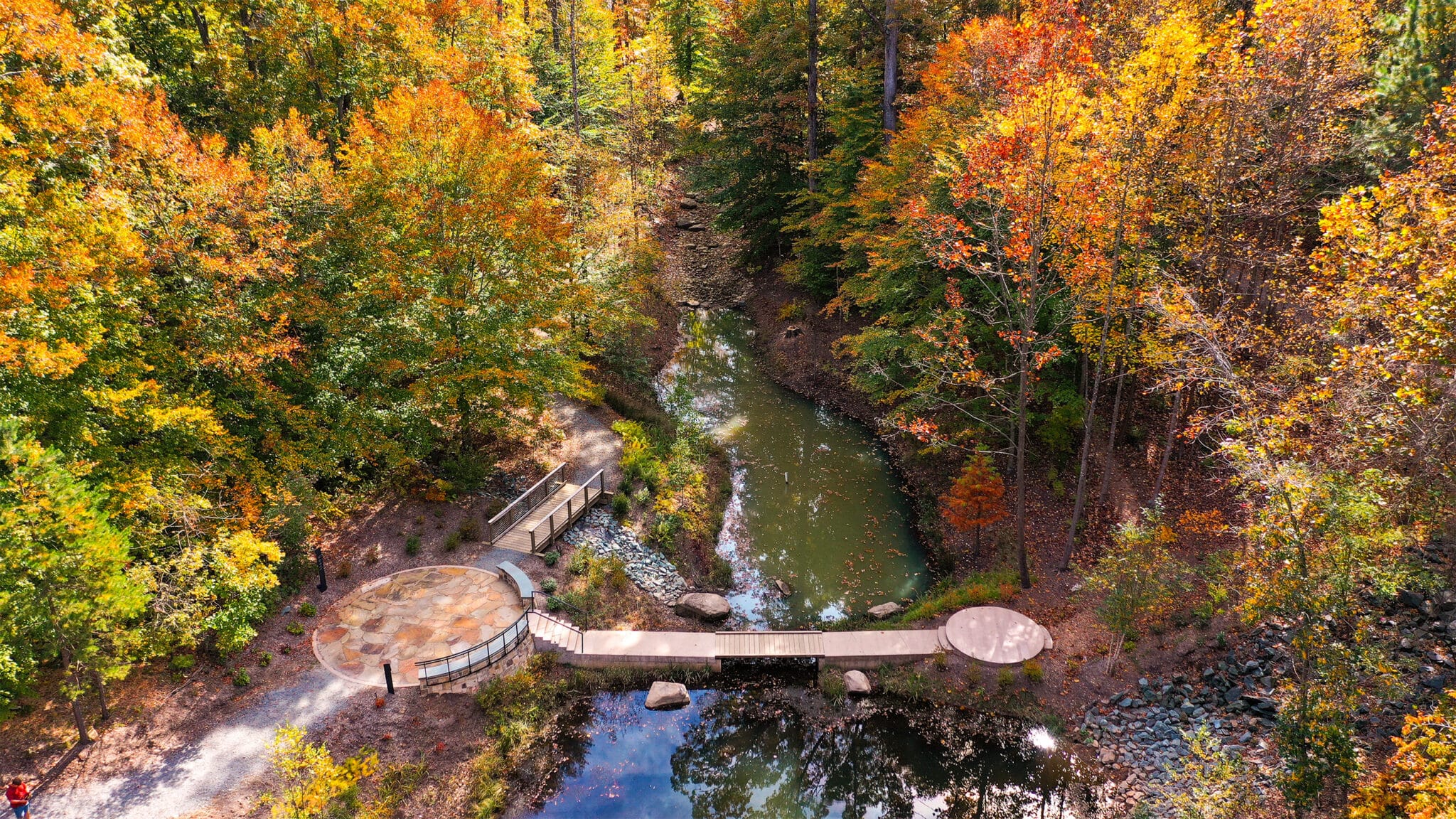
The Thoughtful Design of the Timber Bridges
The architectural vision behind these timber bridges was to create functional art—structures that guide people while also inviting them to pause and enjoy the journey. YBC worked closely with designers and stakeholders at The University of Virginia and The Forum Hotel to ensure that the bridges would serve as more than simple passageways. Instead, they were to become integral components of the landscape, subtly echoing the design aesthetics of the university’s historic architecture and the natural features of the surrounding area.
One of the standout features of the design is the choice of timber, a material that naturally complements Virginia’s scenic beauty. Timber, with its warm and inviting hues, offers a sense of timelessness that synthetic materials cannot replicate. YBC selected high-quality, durable timber that can withstand the outdoor elements while maintaining its structural integrity and appearance. The wood’s natural grain and texture add a rustic yet refined touch, blending beautifully with the greenery and open skies above.
The design incorporates several innovative features to enhance both functionality and user experience. Smooth railings, gentle slopes, and carefully calculated elevations ensure that the bridges are accessible to all visitors, including those with mobility challenges. The bridges’ width allows for a comfortable walking experience, accommodating both individuals and groups. YBC designed these pathways with soft curves and gentle lines that follow the natural contours of the landscape, creating a seamless flow that encourages leisurely exploration. The timber walkways connect the university’s grounds to The Forum Hotel, bridging more than just physical spaces—they create a bridge of experience, linking moments of relaxation with daily activities.
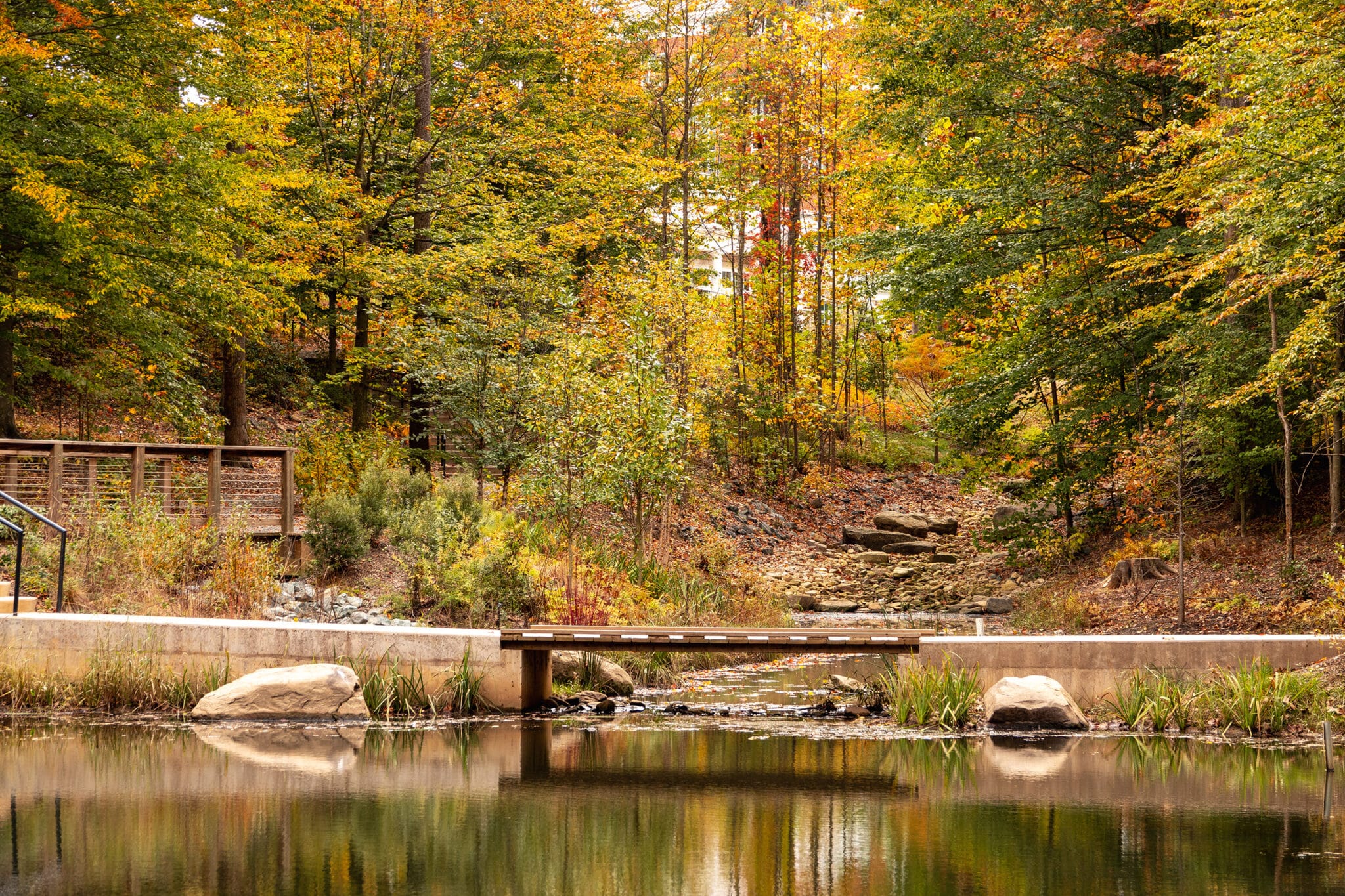
Construction and Engineering Excellence
Building bridges that are both visually appealing and structurally sound requires meticulous planning and an understanding of the nuances of timber as a building material. YBC applied advanced engineering principles to ensure that these timber pedestrian bridges would endure the test of time. Constructing these bridges was a blend of art and science, where each piece of timber was carefully chosen, treated, and assembled to meet stringent safety and durability standards.
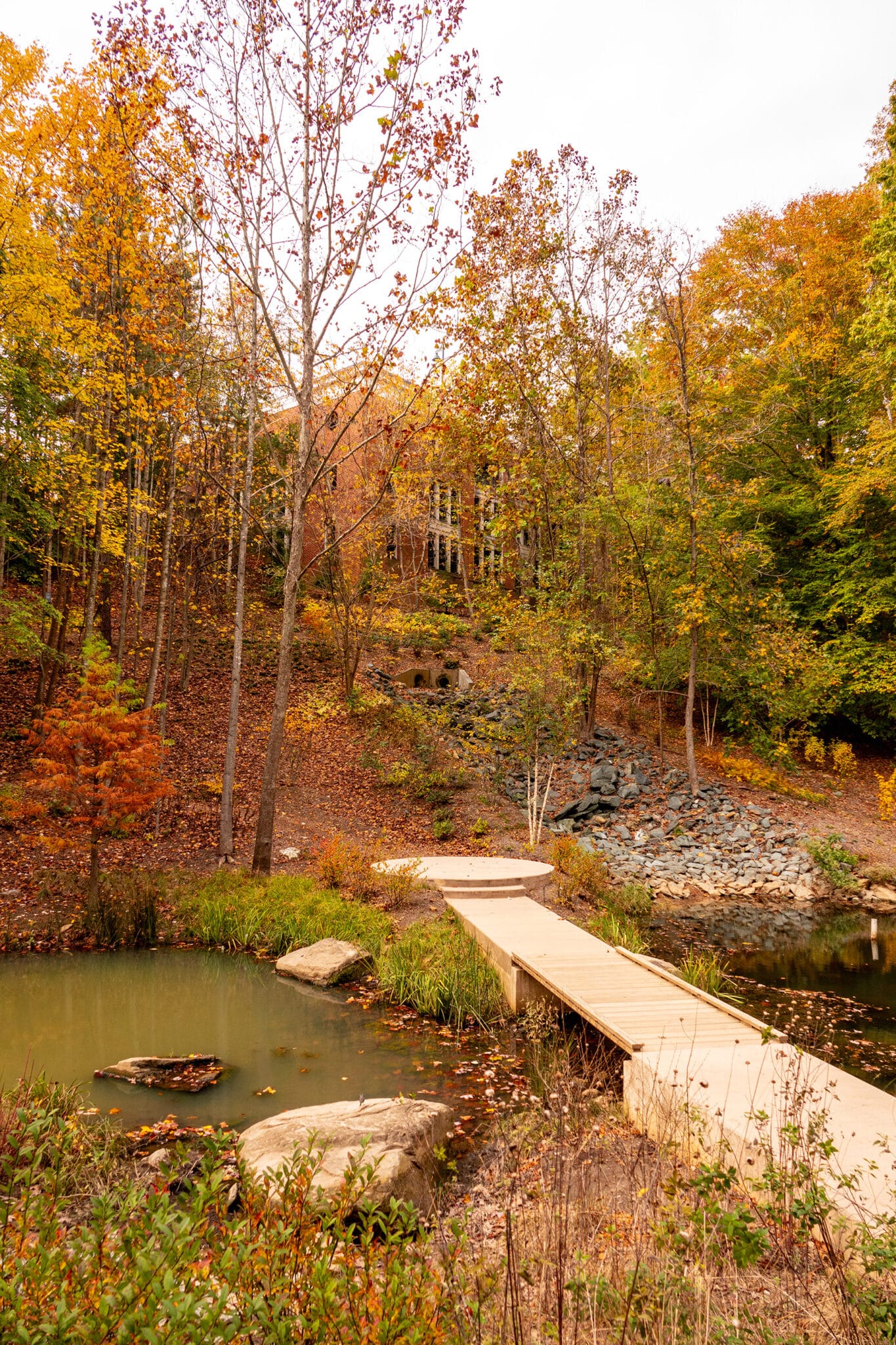
Timber bridge construction demands precision, especially when working with natural materials that may react to moisture, temperature, and other environmental factors. YBC utilized specialized construction techniques, including protective sealants and treatments, to preserve the wood against the elements. This approach not only extends the life of the timber but also reduces the need for frequent maintenance, ensuring that the bridges remain resilient and beautiful over the years.
Throughout the construction process, YBC took care to minimize its ecological footprint. Heavy machinery was strategically used to avoid disrupting the natural landscape, and the entire construction plan was designed to respect the existing flora and fauna. The careful placement of each bridge was decided upon after detailed environmental assessments, ensuring that no harm came to native plants or animals. In doing so, YBC upheld its commitment to environmentally responsible construction practices, aligning with The University of Virginia’s own sustainability goals.
In addition to structural resilience, the engineering of these timber bridges considered pedestrian comfort and safety. The decking is slip-resistant, and the railings are designed to offer security without obstructing the view. These small yet significant details demonstrate YBC’s commitment to creating bridges that prioritize user experience alongside durability. The resulting structures are not just bridges; they are statements of engineering excellence, offering a safe, stable, and enjoyable pathway through the heart of the campus and hotel grounds.
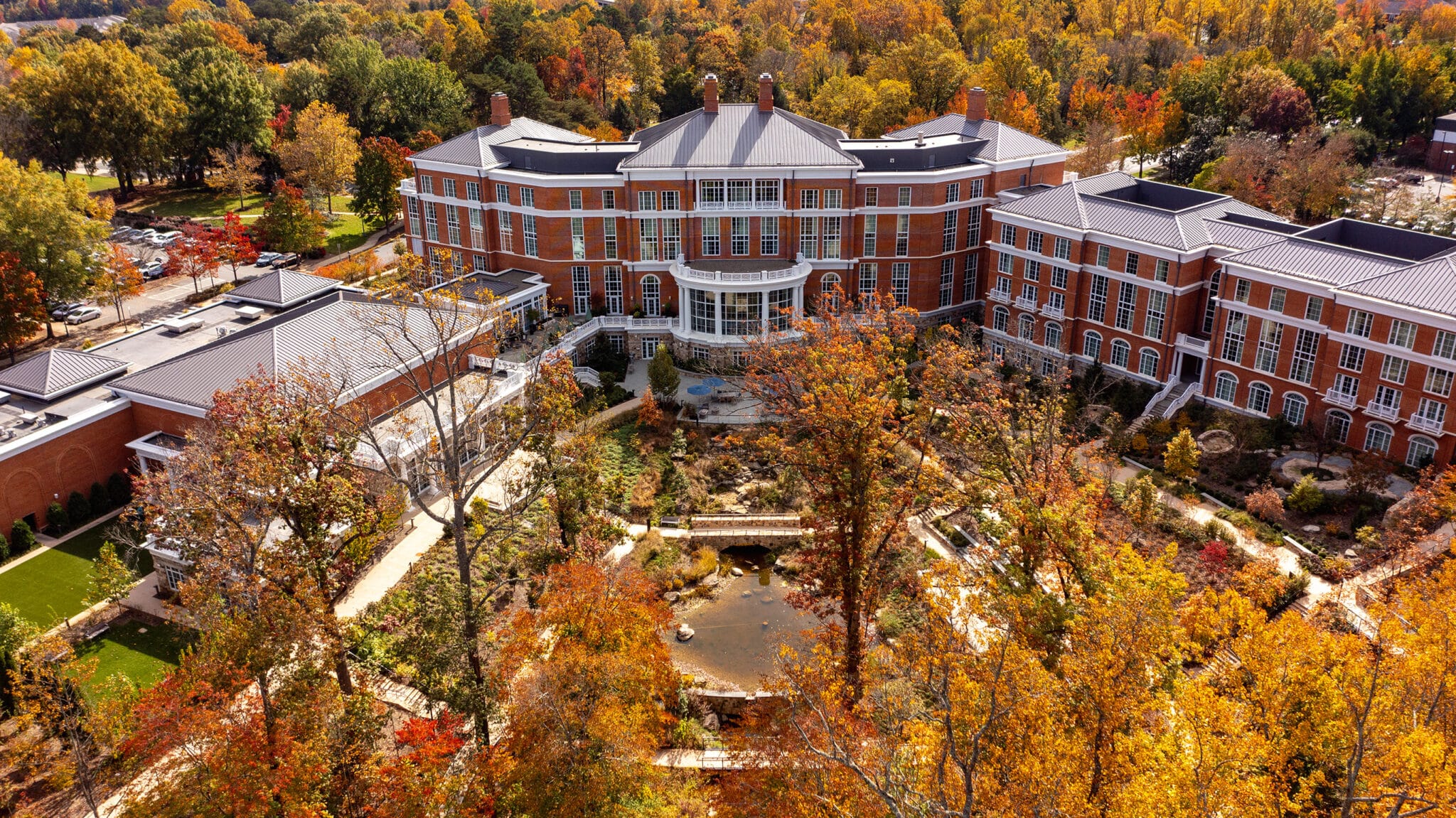
Connecting The University of Virginia & The Forum Hotel
One of the most remarkable aspects of these timber pedestrian bridges is their role in connecting two important landmarks: The University of Virginia and The Forum Hotel. These bridges transform a simple walk into a serene journey, inviting people to immerse themselves in the natural beauty of the area. With landscaped gardens on either side, visitors can pause along the bridges to enjoy views of carefully curated plants, open lawns, and local wildlife, providing a tranquil setting that enhances both relaxation and reflection.
The placement of these bridges within landscaped gardens was no accident. YBC worked alongside landscape architects to ensure that the bridges would blend seamlessly with the flora and fauna that characterize the university’s grounds. Garden paths lead to the bridge entrances, and the journey across offers a picturesque view of the surroundings, showcasing Virginia’s native plant species and creating a sensory experience that changes with the seasons. In spring and summer, the gardens bloom with vibrant colors; in autumn, visitors can enjoy a symphony of reds, oranges, and yellows as the leaves change. Even in winter, the peaceful, leafless trees add a stark beauty to the scene.
Functionally, these bridges offer a convenient, accessible route for students, staff, and hotel guests. Designed to accommodate varying mobility needs, they ensure that everyone, from casual walkers to those with limited mobility, can traverse the grounds comfortably. By connecting the main parts of the university campus with The Forum Hotel, the bridges also make it easier for students, faculty, and visitors to access key areas without disrupting the landscape.
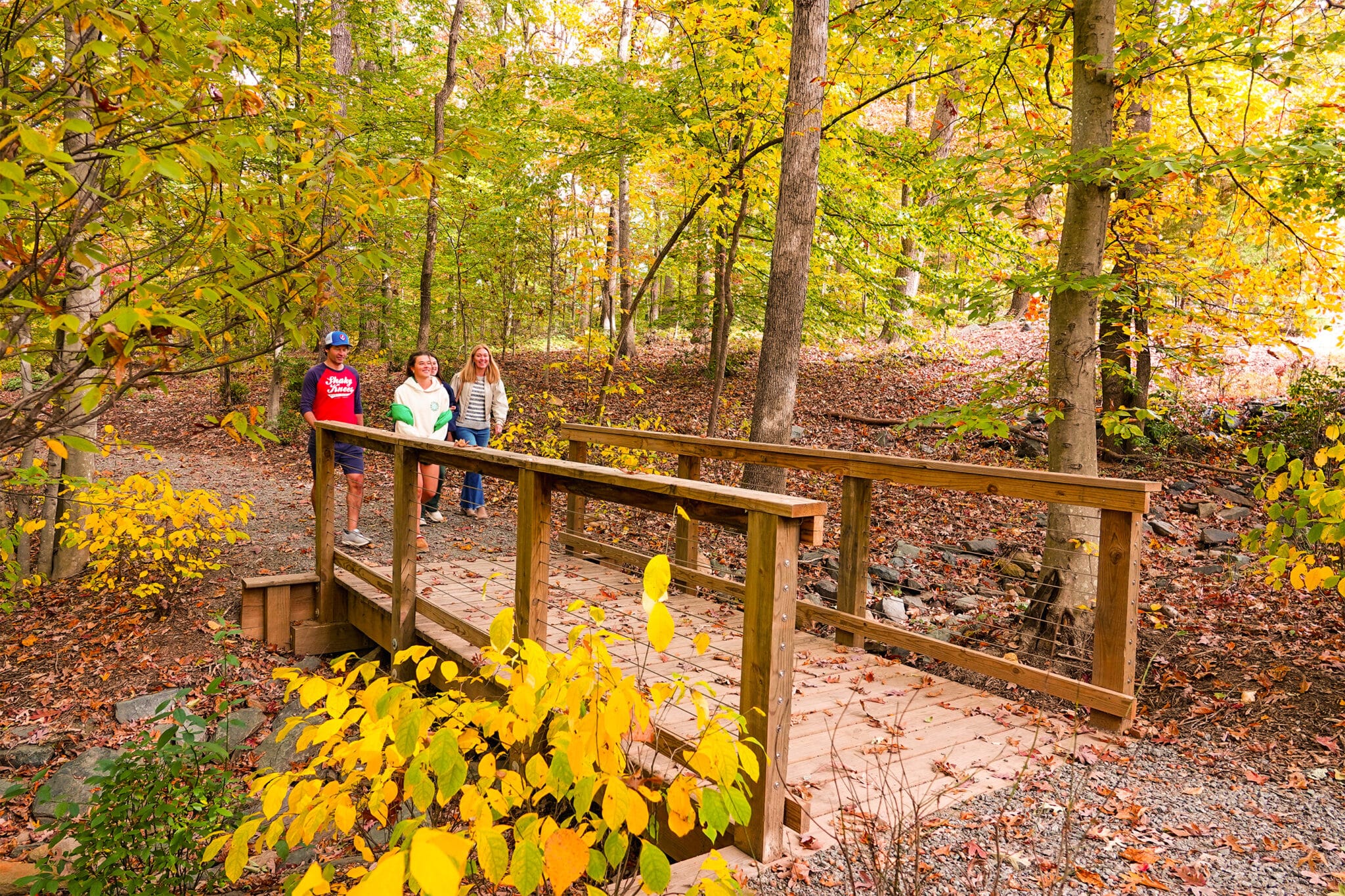
Enhancing the Visitor Experience At University of Virginia
The University of Virginia’s campus and The Forum Hotel attract a wide range of visitors, from students and professors to hotel guests and tourists. YBC’s timber bridges offer more than just a route between locations; they enrich the visitor experience by adding a layer of tranquility and natural beauty to every journey. The serene setting of these bridges encourages visitors to slow down, take a deep breath, and appreciate the surrounding landscape, fostering moments of mindfulness and relaxation.
Each bridge is strategically placed to offer scenic views, creating photo-worthy spots that invite people to pause and appreciate the view. Hotel guests often find these bridges to be a highlight of their stay, as they provide a calming transition from the hotel to the campus and vice versa. Students and faculty also benefit from the peacefulness these bridges bring, as they offer a welcome break from the fast-paced campus environment.
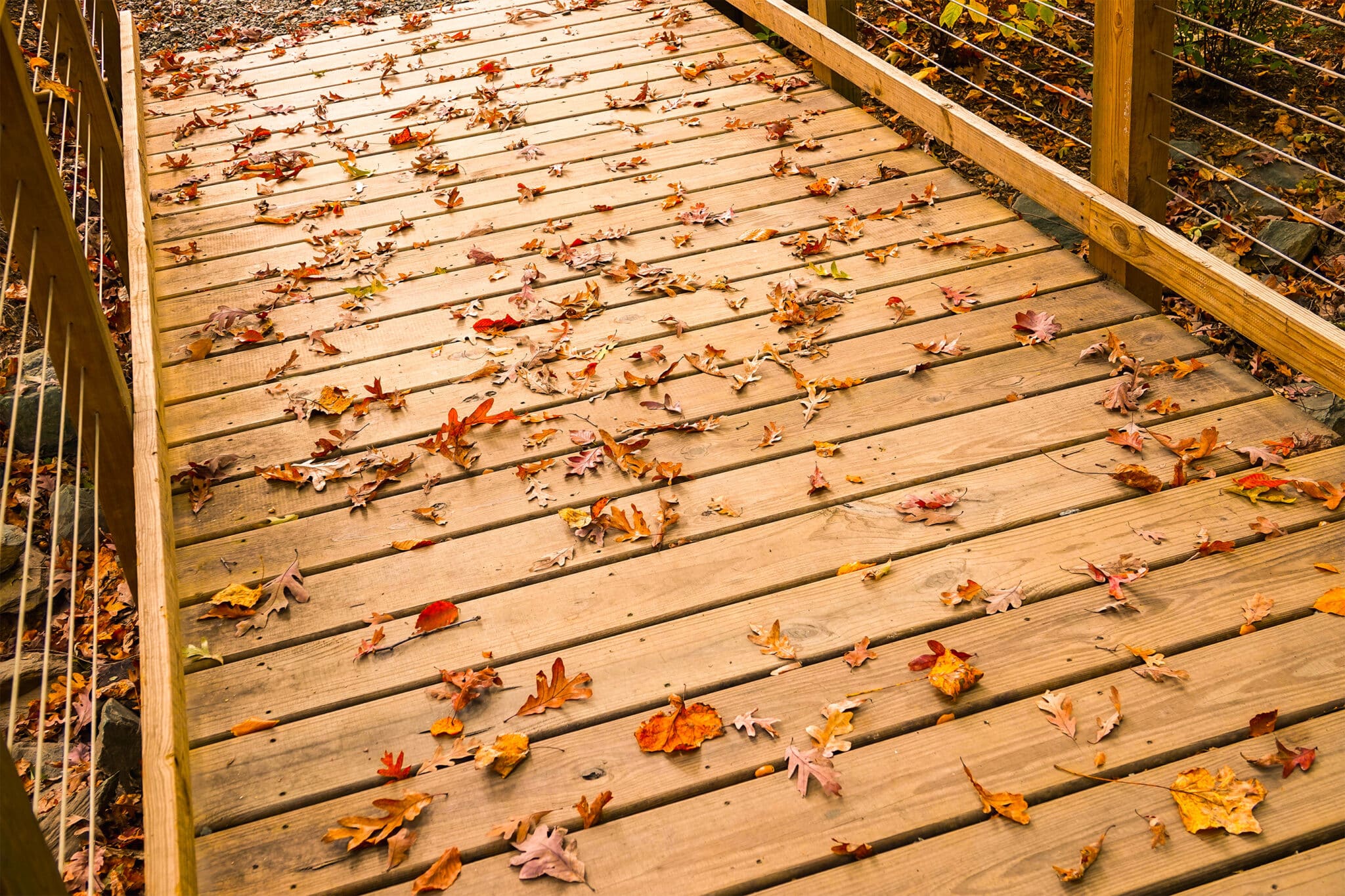
Environmental Sustainability and Eco-Friendly Design
Environmental responsibility was a priority throughout the construction and design process for these timber pedestrian bridges. York Bridge Concepts prides itself on its eco-conscious approach, and this project exemplifies their dedication to sustainable design. The timber used in these bridges was carefully sourced from sustainable suppliers, ensuring that every piece aligns with responsible forestry practices. Additionally, YBC’s construction process prioritized minimal environmental disruption, with strategic planning that preserved the surrounding ecosystems.
The materials chosen for these bridges not only blend seamlessly with the natural surroundings but also have a low environmental impact. Timber is a renewable resource, and using it as a primary construction material helps reduce the carbon footprint of these bridges compared to steel or concrete. The construction methods employed by YBC focused on reducing waste, lowering emissions, and leaving as little impact as possible on the surrounding area. For both The University of Virginia and The Forum Hotel, these bridges represent a shared commitment to environmental stewardship and sustainable development.
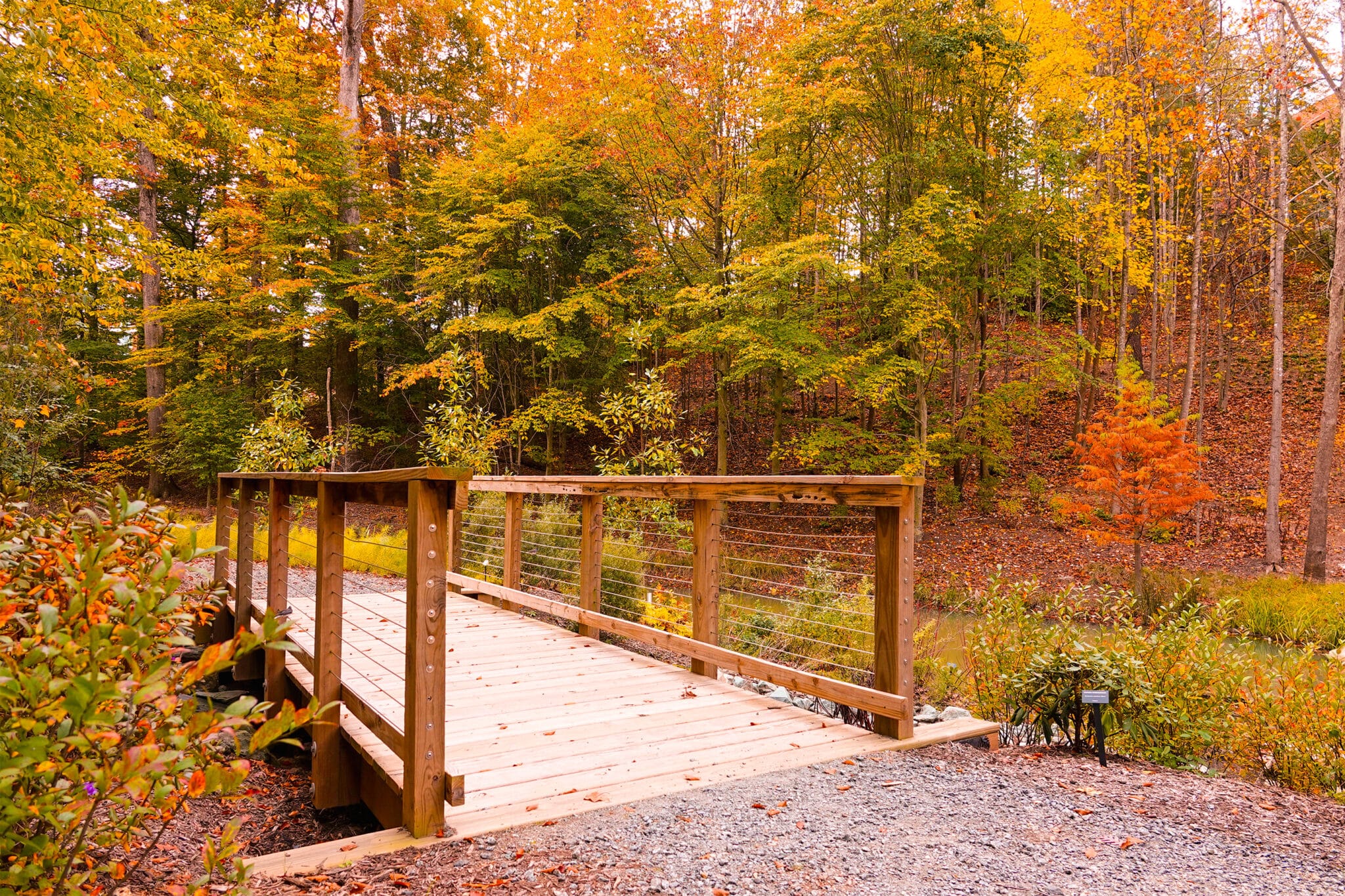
A Lasting Architectural & Environmental Legacy
The timber pedestrian bridges by York Bridge Concepts at The University of Virginia and The Forum Hotel are more than functional walkways—they are lasting pieces of art that symbolize harmony between human infrastructure and nature. These bridges embody the principles of thoughtful design, sustainable construction, and environmental respect, creating spaces where visitors can enjoy the landscape and find moments of peace.
Through their enduring beauty and functionality, these timber bridges have added a significant element to both the university and hotel, enhancing the natural setting while offering a testament to YBC’s expertise in sustainable bridge construction. In bridging the physical spaces between the university campus and The Forum Hotel, they have also bridged the gap between infrastructure and nature, leaving a legacy that will inspire generations to come.
Create Your Legacy Today
Discover the intersection of strength, durability, and environmental responsibility with York Bridge Concepts. Let's build a bridge to the future together.

